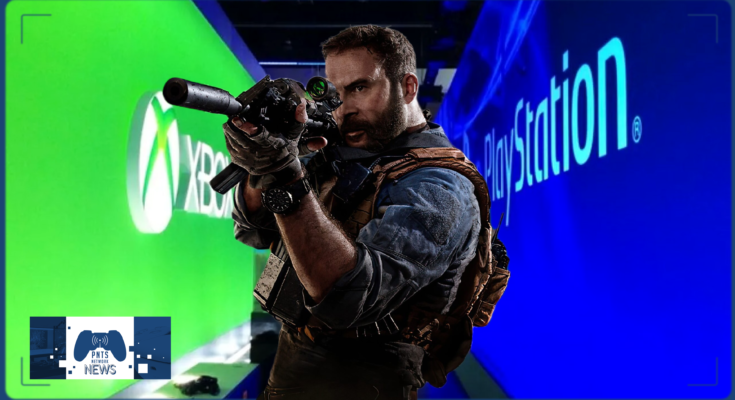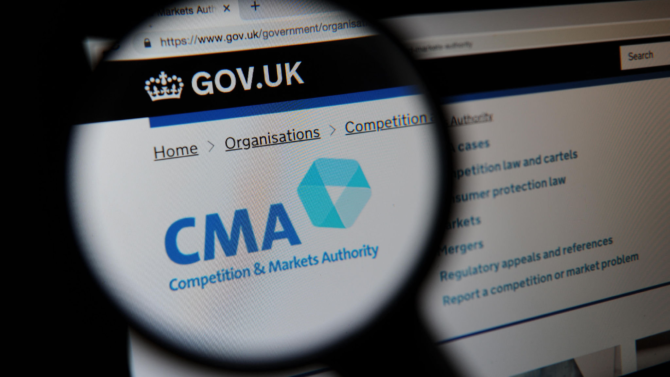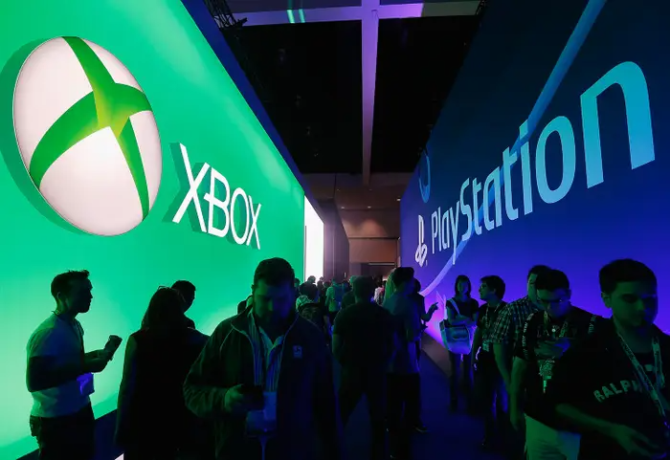On the heels of updated provisional findings from the CMA, now would be a good time to explore the “Why”. That question is being aimed at, why this legal back and forth is happening/necessary. Therefore, let’s delve into the biggest game merger proposal in the history of the sector. However, let’s talk about Microsoft’s record-breaking 68.7 billion dollar acquisition of Activision Blizzard in a way few are doing. Let’s analyze its impact on the gaming industry including potential exclusivity of Call of Duty to Xbox. It’s important to do this, while addressing concerns raised by Sony and regulatory bodies like the EU CMA and FTC.
Understanding the business around the scrutiny
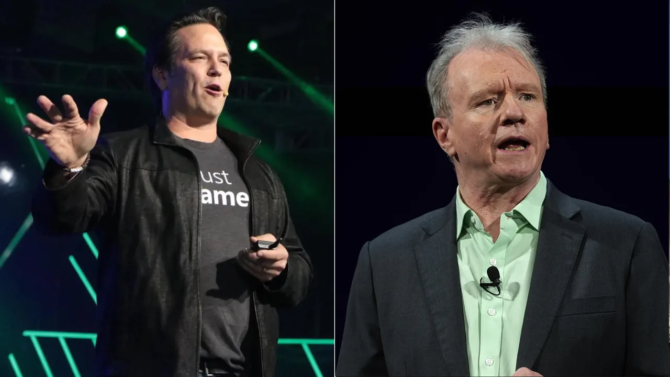
‘Desperate’ or ‘Pathetic’ doesn’t apply here
The arguments against the UK, EU, FTC regulators and Sony deal have been met with resistance by some gamers. They believe that regulators do not have a case, that Sony’s arguments are pathetic, and that there is a bias against Xbox. However, it is important to understand the role of regulators and their purpose in evaluating mergers. They are tasked with preventing anti competitive practices and protect consumers and innovation. The EU CMA and FTC play crucial roles in ensuring that mergers do not lead to monopolies. Such can stifle competition and limit consumer choices. It is not about whether you prefer one platform over the other. It’s not about whether you benefit from the deal financially. Rather, it’s about ensuring that mergers do not lead to anti competitive practices among companies. This again in the eyes of the regulators, can limit consumer choice .
Before continuing any further, let’s make some things abundantly clear. It is totally understood why Microsoft is pursuing this deal. They have every right to. It makes complete business sense for them to do so. Frankly, if approved without Sony’s concerns being fully remedied, the Playstation parent company will just have to deal with it. However, that outcome is not etched in stone. Therefore, Sony in many ways is obligated to push back on this deal.
Stop the shift
Why? For Sony, if this precedent is set, there is nothing prohibiting Microsoft from buying up and controlling third-party games that are vital to Sony’s business, which could harm Sony’s market share and competitiveness . And yes… as a regulatory body CMA, EU along with the FTC would scrutinize the deal. Yes again, they would do so mainly on Sony (or any business in their position’s) behalf based on the complaints provided. No this is not favoritism. This is their job. Any monopolistic potential a deal could present, especially for a large part of a business sector must be resolved before passage. This again, is based on each of these regulator body’s given roles. It cannot be forgotten that Sony makes up 1/3 of the companies currently operating in this sector (Nintendo Xbox Playstation). Even though it is one company,it’s still a significant portion of the sector’s competition voicing concerns.
Additionally, for consumers who do not like the general Xbox ecosystem but regularly enjoy games like Call of Duty (CoD), they could arguably be thrust in an anti consumer situation. How? Well, they could potentially be forced to invest in a different/additional ecosystem, disrupting the already more feasible choice for them as a consumer. Why? Well, if Sony’s voiced concerns materialize after such a deal (uneven parity or total lack thereof), then an anti consumer blight would have been created.
Sony appears to effectively argued this contention to regulators. The possibility of such has been cited by the FTC and CMA. The UK CMA even provided analysis that states 16/24% of CoD gamers would leave their ecosystem in regards to any significant CoD parity concerns in favor of Xbox. They have also effectively pointed to Xbox statements made about Bethesda in regards to parity . This has also been cited by regulators, quite notably the FTC. The UK CMA and EU have to date backed away from these concerns. Nonetheless, that doesn’t omit the fact Sony was able to deliver these issues in a way to have remedies considered.
The Obligation
Finally, as a publicly traded company, Sony has a fiduciary responsibility to act in the best interests of its investors, including disclosing relevant information that could impact the company’s value. If Sony notices a deal from a competitor that could harm the company’s business, they have a responsibility to inform their investors of the potential risks and to take steps to mitigate any negative impact. This duty of loyalty requires the company’s directors and officers to act in good faith and in the best interest of the company’s stakeholders. In conclusion, it is important to understand the purpose of regulatory bodies, the potential impact of mergers on consumers and competition, and the fiduciary responsibilities of publicly traded companies in evaluating and responding to deals like the UK EU FTC & Sony deal.
A Step Forward or Backward for the Gaming Industry
Understanding the power play
The announcement of Microsoft’s acquisition of Activision, one of the world’s largest gaming companies, has definitely sparked a debate about the future of the gaming industry. While some experts believe that the merger could lead to new and exciting opportunities for gamers, others are concerned about the impact it could have on competition and innovation in the industry.
According to reports, Microsoft paid a staggering $69 billion to acquire Activision, which is responsible for popular franchises such as Call of Duty (CoD), World of Warcraft, and Candy Crush. The move was seen as a major power play by Microsoft, which is looking to expand its reach in the gaming world and strengthen its position against rivals such as Sony.
Not all are on board
However, not everyone is convinced that the merger is a good thing. Critics have pointed out that the deal could lead to a consolidation of power in the gaming industry, with Microsoft becoming the dominant force in the market. This, in turn, could stifle competition and innovation, as smaller companies struggle to compete with the new behemoth.
Moreover, some gamers have expressed concern about the impact the merger could have on the quality of games. Activision is known for its high-quality titles, but some fear that the company’s focus on profitability could lead to a decline in the quality of its games.
Not all are against either
On the other hand, supporters of the merger argue that it could lead to new and exciting opportunities for gamers. For example, Microsoft’s Xbox Game Pass subscription service could be expanded to include more games from Activision’s portfolio. This gives subscribers access to a wider range of titles.
Additionally, some experts have argued that the merger could help to drive innovation in the gaming industry. By combining their resources, Microsoft and Activision could develop new technologies and platforms that push the boundaries of what is possible in gaming.
The Quality concerns
Despite these arguments, however, some gamers remain skeptical of the merger. In particular, those who prefer Sony’s business model have raised concerns about Microsoft’s focus on profitability, which they see as being at odds with the goal of creating high-quality games.
Sony’s business model involves taking risks on new and innovative IPs. They persist in doing so even though the majority of them may not be financially successful. This approach has allowed the company to offer some of the best games in the world. Their exclusive games have become synonymous with high-quality. This has lead to terms such as “block buster AAA” being a hallmark of the PlayStation brand.
In contrast, Microsoft’s business model focuses on Xbox Game Pass as its main driver. While the subscription service has been successful, some gamers have expressed concern that it could lead to a decline in the quality of games. This is due to the fear publishers would be even more enticed to shift their focus. That shift would be on profitability rather than creating innovative and high-quality titles.
Overall, it remains to be seen what the impact of the Microsoft Activision merger will be on the gaming industry. While some experts believe that it could lead to new and exciting opportunities, others are concerned. They feel it could have a negative impact on competition and innovation. Only time will tell which of these predictions will come to fruition.
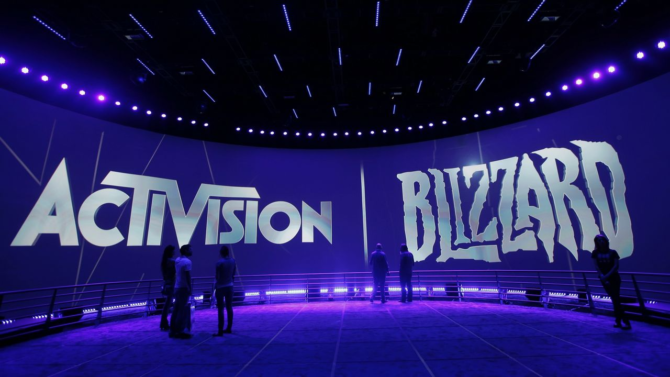
Finally…
In conclusion, the Microsoft Activision merger is a complex issue. It raises important questions about the future of the gaming industry. By examining the arguments for and against the merger, something certainly becomes clearer. That is, there’s no simple answer to this absolute outcome at the time of this writing. However, by engaging in a thoughtful and nuanced discussion, we can better understand the potential impact of this deal and work towards a brighter future for gaming. We do so by better understanding the business behind it.

